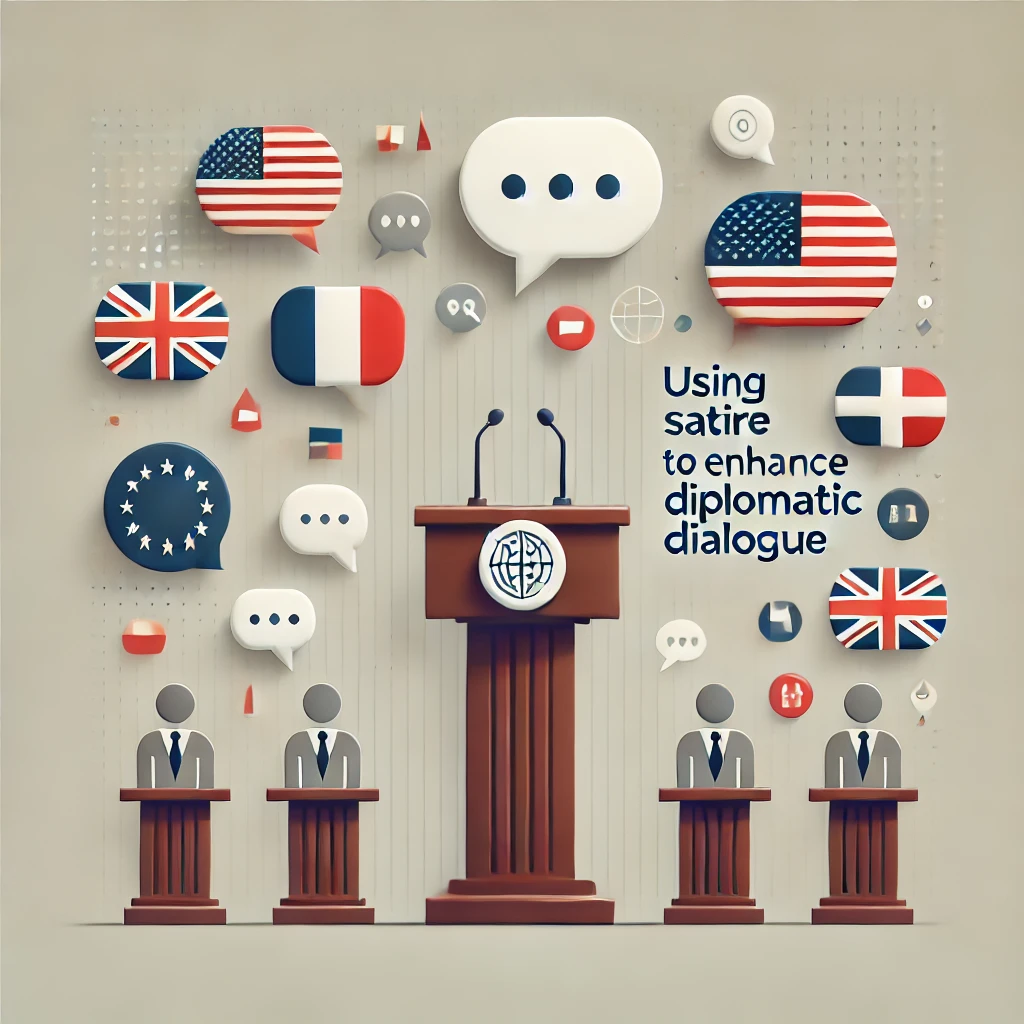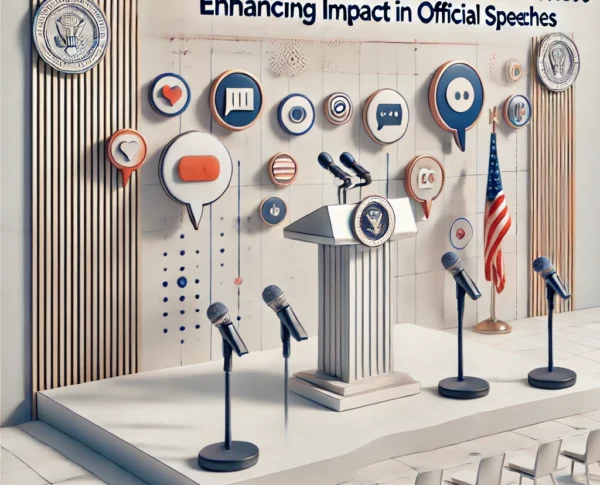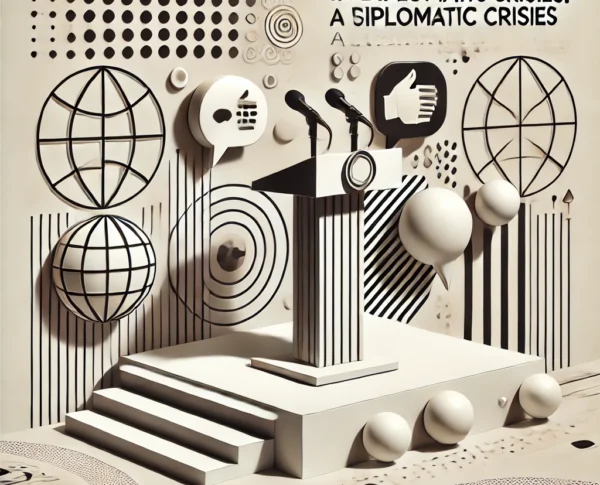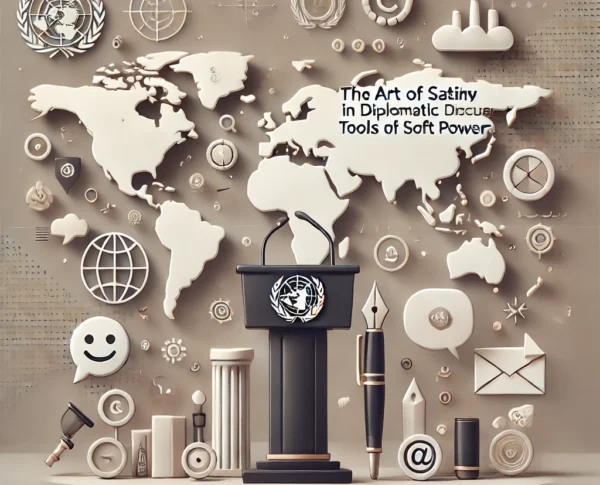This training course, titled “Using Satire to Enhance Diplomatic Dialogue,” aims to equip participants with a deep understanding of how satire can be used as a tool to strengthen diplomatic conversations. Participants will learn how to strategically integrate satire into diplomatic discourse, contributing to more effective relationship-building and enhancing the impact of negotiations and diplomatic discussions. The course will focus on both the practical and theoretical aspects of satire as a means of successful diplomatic communication.
Who Should Attend?
- Diplomats and international negotiators.
- Spokespersons for embassies and international organizations.
- Political advisors and analysts.
- Students and practitioners in the field of international relations.
- Journalists interested in international affairs and diplomatic discourse.
Course Contents:
Day 1: Introduction to Satire and Its Impact on Diplomatic Dialogue
- Session 1: Defining Satire and Its Types
What is satire? The difference between satire and humor.
Types of satire and examples of its use in diplomatic discourse. - Session 2: Satire as a Tool of Influence in International Relations
Why is satire an effective tool in diplomacy?
The impact of satire on international dialogues and debates. - Session 3: Case Study: The Use of Satire in Historical Diplomatic Discourse
Analysis of famous examples of satire in political speeches.
Day 2: Tools and Techniques of Satire in Diplomatic Dialogue
- Session 1: Building a Satirical Argument
How to develop a diplomatic argument using satire.
Key elements of constructing an effective satirical speech. - Session 2: Timing Satire in Diplomatic Dialogue
When is it appropriate to use satire? When should it be avoided?
How to use satire smartly to achieve the desired impact. - Session 3: Workshop: Writing Satirical Diplomatic Speeches
Writing and analyzing satirical diplomatic speeches based on case studies.
Day 3: Satire in Diplomatic Negotiations and Conflict Resolution
- Session 1: Using Satire to Ease Tensions in Negotiations
How satire can ease tensions and foster optimism in negotiations. - Session 2: Employing Satire in Diplomatic Conflict Resolution
Examples of using satire to resolve conflicts. - Session 3: Workshop: Simulating Diplomatic Negotiations
Applying satire skills in complex diplomatic negotiations.
Day 4: Challenges and Risks of Using Satire
- Session 1: Diplomatic and Ethical Risks of Using Satire
How can satire backfire? What are the consequences? - Session 2: Case Studies of Satirical Failures
Analyzing examples of the failure of satire in international diplomacy. - Session 3: Balancing Satire and Seriousness in Diplomatic Dialogue
How to use satire smartly to avoid risks and maintain professionalism.
Day 5: Practical Applications and Future Satirical Strategies
- Session 1: Writing a Satirical Diplomatic Speech
Applying the knowledge gained during the course to write a diplomatic speech using satire. - Session 2: Presenting and Evaluating Speeches
Participants present their speeches and receive feedback and evaluations. - Session 3: Strategies for Using Satire in the Future
Tips on improving satirical skills in diplomatic dialogue and planning to use satire effectively in future diplomatic contexts.
Course Outcomes:
By the end of the course, participants will be able to:
- Gain a comprehensive understanding of satire in diplomacy: define satire and use it strategically in diplomatic dialogue.
- Develop satirical diplomatic writing skills: write diplomatic speeches and scenarios that include well-thought-out satirical elements.
- Analyze satirical situations in negotiations: use satire to ease tensions and foster dialogue in negotiations.
- Avoid risks associated with using satire: distinguish between situations where satire can be used effectively and those that may lead to negative outcomes.
- Employ satire smartly in the future: plan to use satire in future diplomatic engagements to enhance the impact of diplomatic discourse and achieve political objectives.
Curriculum
- 5 Sections
- 34 Lessons
- 10 Weeks
- Day 1: Introduction to Satire and Its Impact on Diplomatic Dialogue8
- 1.0• Session 1: Defining Satire and Its Types
- 1.1What is satire? The difference between satire and humor.
- 1.2Types of satire and examples of its use in diplomatic discourse.
- 1.3• Session 2: Satire as a Tool of Influence in International Relations
- 1.4Why is satire an effective tool in diplomacy?
- 1.5The impact of satire on international dialogues and debates.
- 1.6• Session 3: Case Study: The Use of Satire in Historical Diplomatic Discourse
- 1.7Analysis of famous examples of satire in political speeches.
- Day 2: Tools and Techniques of Satire in Diplomatic Dialogue8
- 2.0• Session 1: Building a Satirical Argument
- 2.1How to develop a diplomatic argument using satire.
- 2.2Key elements of constructing an effective satirical speech.
- 2.3• Session 2: Timing Satire in Diplomatic Dialogue
- 2.4When is it appropriate to use satire? When should it be avoided?
- 2.5How to use satire smartly to achieve the desired impact.
- 2.6• Session 3: Workshop: Writing Satirical Diplomatic Speeches
- 2.7Writing and analyzing satirical diplomatic speeches based on case studies.
- Day 3: Satire in Diplomatic Negotiations and Conflict Resolution6
- 3.0• Session 1: Using Satire to Ease Tensions in Negotiations
- 3.1How satire can ease tensions and foster optimism in negotiations.
- 3.2• Session 2: Employing Satire in Diplomatic Conflict Resolution
- 3.3Examples of using satire to resolve conflicts.
- 3.4• Session 3: Workshop: Simulating Diplomatic Negotiations
- 3.5Applying satire skills in complex diplomatic negotiations.
- Day 4: Challenges and Risks of Using Satire6
- 4.0• Session 1: Diplomatic and Ethical Risks of Using Satire
- 4.1How can satire backfire? What are the consequences?
- 4.2• Session 2: Case Studies of Satirical Failures
- 4.3Analyzing examples of the failure of satire in international diplomacy.
- 4.4• Session 3: Balancing Satire and Seriousness in Diplomatic Dialogue
- 4.5How to use satire smartly to avoid risks and maintain professionalism.
- Day 5: Practical Applications and Future Satirical Strategies6
- 5.0• Session 1: Writing a Satirical Diplomatic Speech
- 5.1Applying the knowledge gained during the course to write a diplomatic speech using satire.
- 5.2• Session 2: Presenting and Evaluating Speeches
- 5.3Participants present their speeches and receive feedback and evaluations.
- 5.4• Session 3: Strategies for Using Satire in the Future
- 5.5Tips on improving satirical skills in diplomatic dialogue and planning to use satire effectively in future diplomatic contexts.






